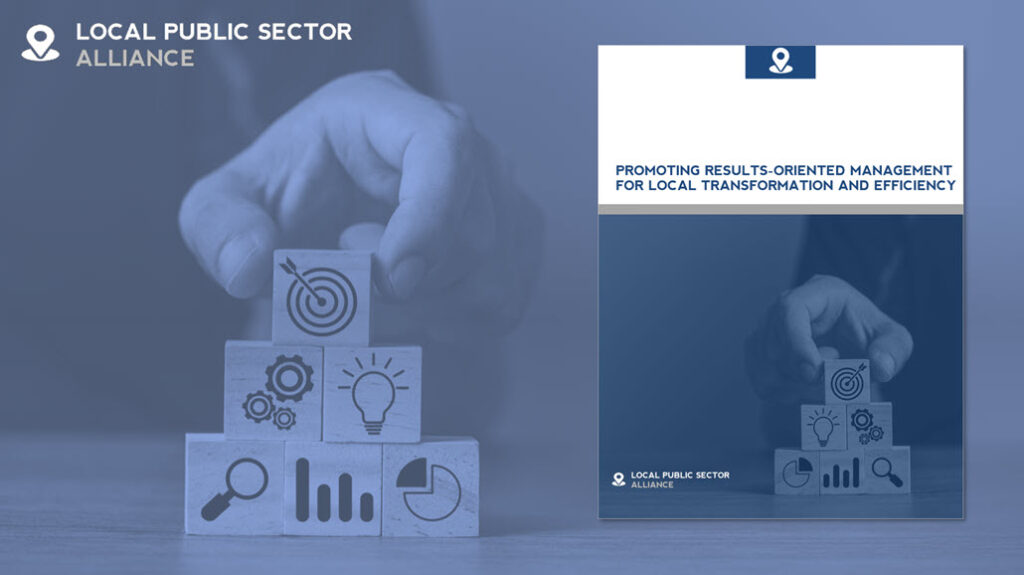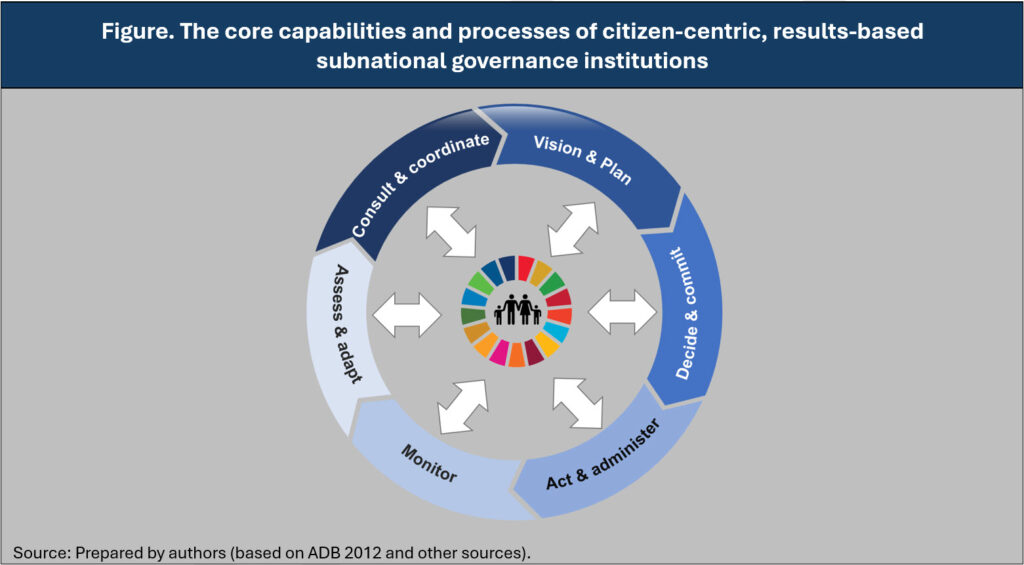
The benefits of a multilevel public sector and decentralized local governance are not simply achieved by mandating decentralizing or devolving powers, functions and resources to subnational governments. Achieving inclusive, results-oriented, citizen-centric public sector governance and management requires deliberate and ongoing actions by stakeholders at all government levels to ensure that public sector institutions are results-driven and accountable to their constituents.
The PROMOTE framework (Promoting Results-Oriented Management for Local Transformation and Efficiency) recognizes that some subnational governance institutions are well-positioned to achieve their mission of creating value for its constituents (residents/voters/ taxpayers) by serving as a platform for collective decision-making and by providing inclusive and efficient public services, whereas others are not. The PROMOTE framework provides a conceptual and practical framework for assessing the inclusiveness and results-orientation of subnational governance institutions in the context of a multilevel public sector.
The PROMOTE assessment consists of two components: a quantitative component (that evaluates evidence-informed decision-making and resource allocation at the local level) and a detailed qualitative component (which assesses the institutional capabilities of inclusive, results-oriented local governments). It is important to complete both components, as the quantitative component informs the qualitative component.
The PROMOTE framework recognizes that in order for subnational governance institutions to create value for their constituents as a platform for collective decision-making and by providing inclusive access to quality public services, they must possess and display core capabilities: (1) the capability to consult and coordinate; (2) the capability to vision and plan; (3) the capability to decide and commit; (4) the capability to act and administer; (5) the capability to monitor and report; and (6) the capability to assess and adapt.
Furthermore, the framework recognizes that different stakeholders or actors exist within a local government organization, and that each of these stakeholders has the ability to determine or influence subnational policies and service delivery outcomes. While the exact set of stakeholders within a subnational governance organization may vary from country to country (and even within a country), an assessment might separately consider (1) the local political executive; (2) the local political council or assembly (i.e., the non-executive local political leadership); (3) local administrative departments (e.g., local directors and staff at the local headquarters level); (4) ward-level administrators and/or offices; (5) facility-level service delivery providers, systems, and procedures; and (6) and the role of local constituents (through public participation, accountability; and transparency arrangements).
The PROMOTE framework complements LPSA’s Local Governance Institutions Comparative Assessment (LoGICA) Framework; LPSA’s Intergovernmental Fiscal and Expenditure Review (InFER) framework; and LPSA’s Multilevel governance as an Opportunity or Obstacle to Development (MOOD) framework.
Downloads / Links
Local Public Sector Alliance. 2024. Promoting Results-Oriented Management for Local Transformation And Efficiency. (Working Draft: July 2024).


